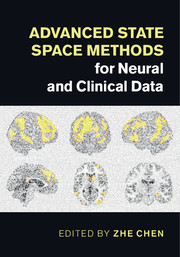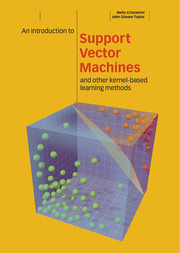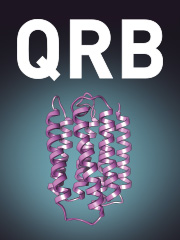Advanced State Space Methods for Neural and Clinical Data
This authoritative work provides an in-depth treatment of state space methods, with a range of applications in neural and clinical data. Advanced and state-of-the-art research topics are detailed, including topics in state space analyses, maximum likelihood methods, variational Bayes, sequential Monte Carlo, Markov chain Monte Carlo, nonparametric Bayesian, and deep learning methods. Details are provided on practical applications in neural and clinical data, whether this is characterising time series data from neural spike trains recorded from the rat hippocampus, the primate motor cortex, or the human EEG, MEG or fMRI, or physiological measurements of heartbeats or blood pressures. With real-world case studies of neuroscience experiments and clinical data sets, and written by expert authors from across the field, this is an ideal resource for anyone working in neuroscience and physiological data analysis.
- Focuses on advanced and state-of-the-art state space methods
- Details the practical applications for neural and clinical data
- Includes real-world case studies of neuroscience experiments and clinical data sets
Product details
August 2016Adobe eBook Reader
9781316355213
0 pages
0kg
93 b/w illus. 15 tables
This ISBN is for an eBook version which is distributed on our behalf by a third party.
Table of Contents
- 1. Introduction Z. Chen
- 2. Inference and learning in latent Markov models D. Barber and S. Chiappa
- Part I. State Space Methods for Neural Data:
- 3. State space methods for MEG source reconstruction M. Fukushima, O. Yamashita and M. Sato
- 4. Autoregressive modeling of fMRI time series: state space approaches and the general linear model A. Galka, M. Siniatchkin, U. Stephani, K. Groening, S. Wolff, J. Bosch-Bayard and T. Ozaki
- 5. State space models and their spectral decomposition in dynamic causal modeling R. Moran
- 6. Estimating state and parameters in state space models of spike trains J. H. Macke, L. Buesing and M. Sahani
- 7. Bayesian inference for latent stepping and ramping models of spike train data K. W. Latimer, A. C. Huk and J. W. Pillow
- 8. Probabilistic approaches to uncover rat hippocampal population codes Z. Chen, F. Kloosterman and M. A. Wilson
- 9. Neural decoding in motor cortex using state space models with hidden states W. Wu and S. Liu
- 10. State-space modeling for analysis of behavior in learning experiments A. C. Smith
- Part II. State Space Methods for Clinical Data:
- 11. Bayesian nonparametric learning of switching dynamics in cohort physiological time series: application in critical care patient monitoring L. H. Lehman, M. J. Johnson, S. Nemati, R. P. Adams and R. G. Mark
- 12. Identifying outcome-discriminative dynamics in multivariate physiological cohort time series S. Nemati and R. P. Adams
- 13. A dynamic point process framework for assessing heartbeat dynamics and cardiovascular functions Z. Chen and R. Barbieri
- 14. Real-time segmentation and tracking of brain metabolic state in ICU EEG recordings of burst suppression M. B. Westover, S. Ching, M. M. Shafi, S. S. Cash and E. N. Brown
- 15. Signal quality indices for state-space electrophysiological signal processing and vice versa J. Oster and G. D. Clifford.








